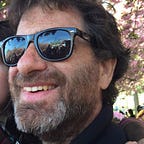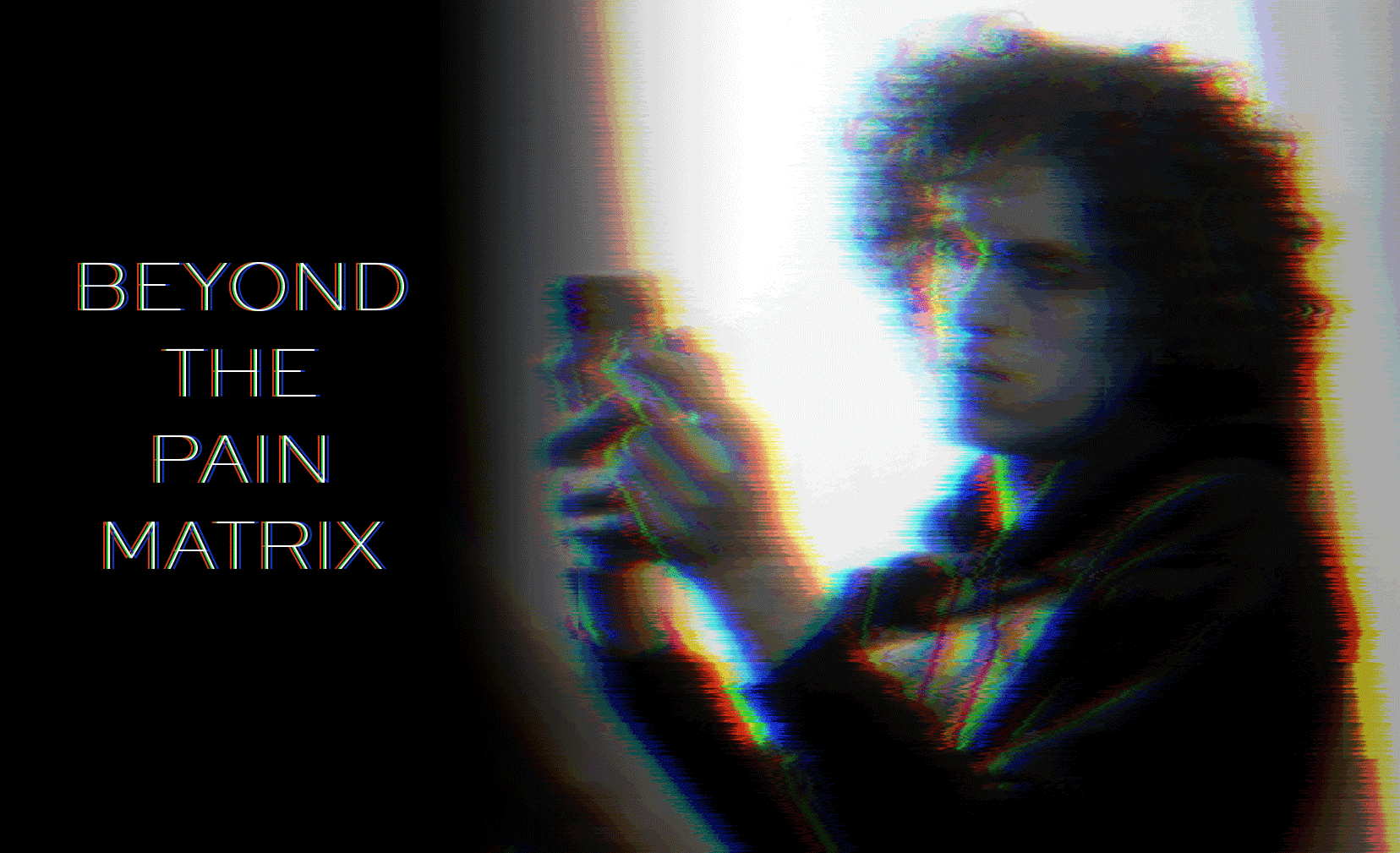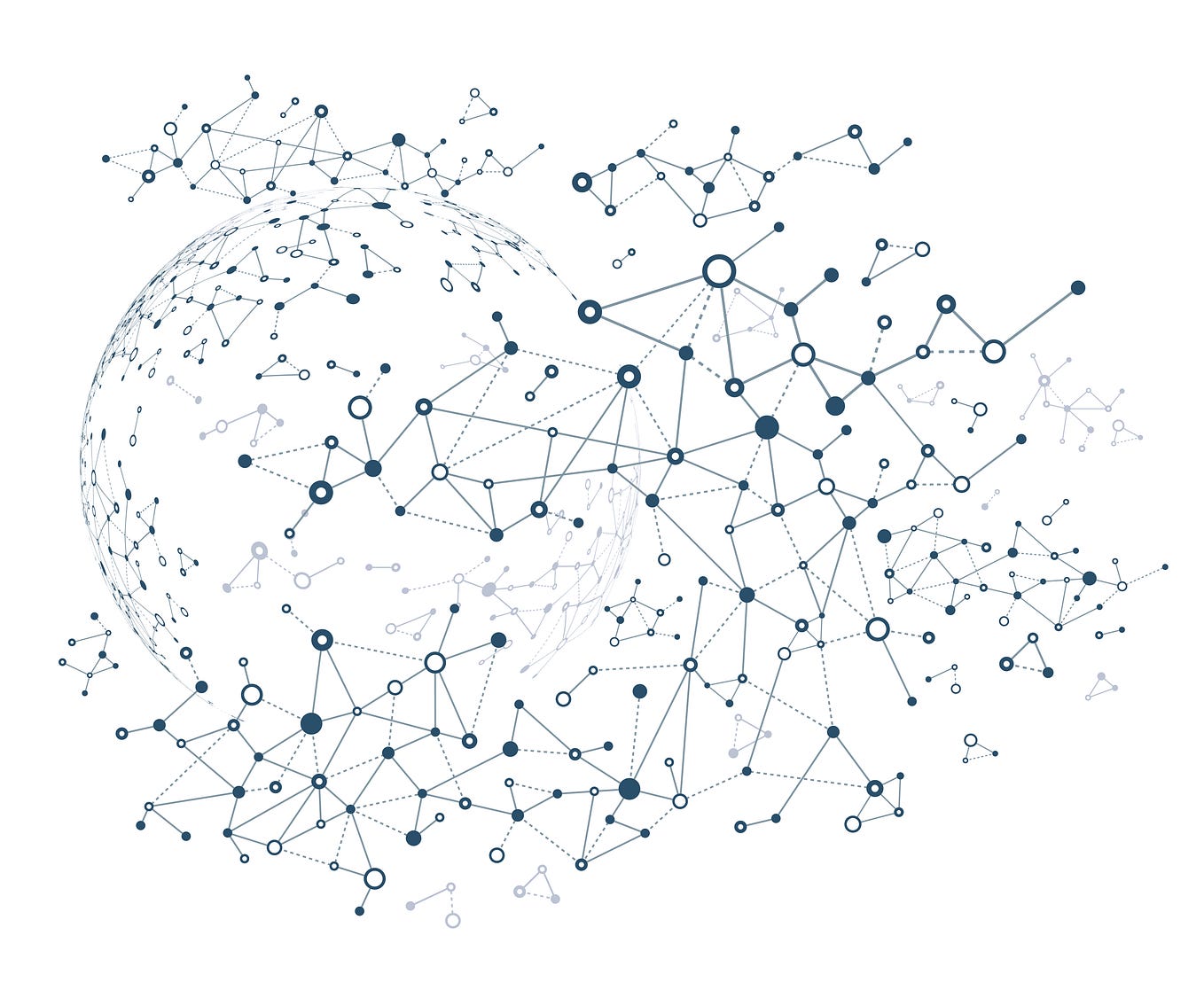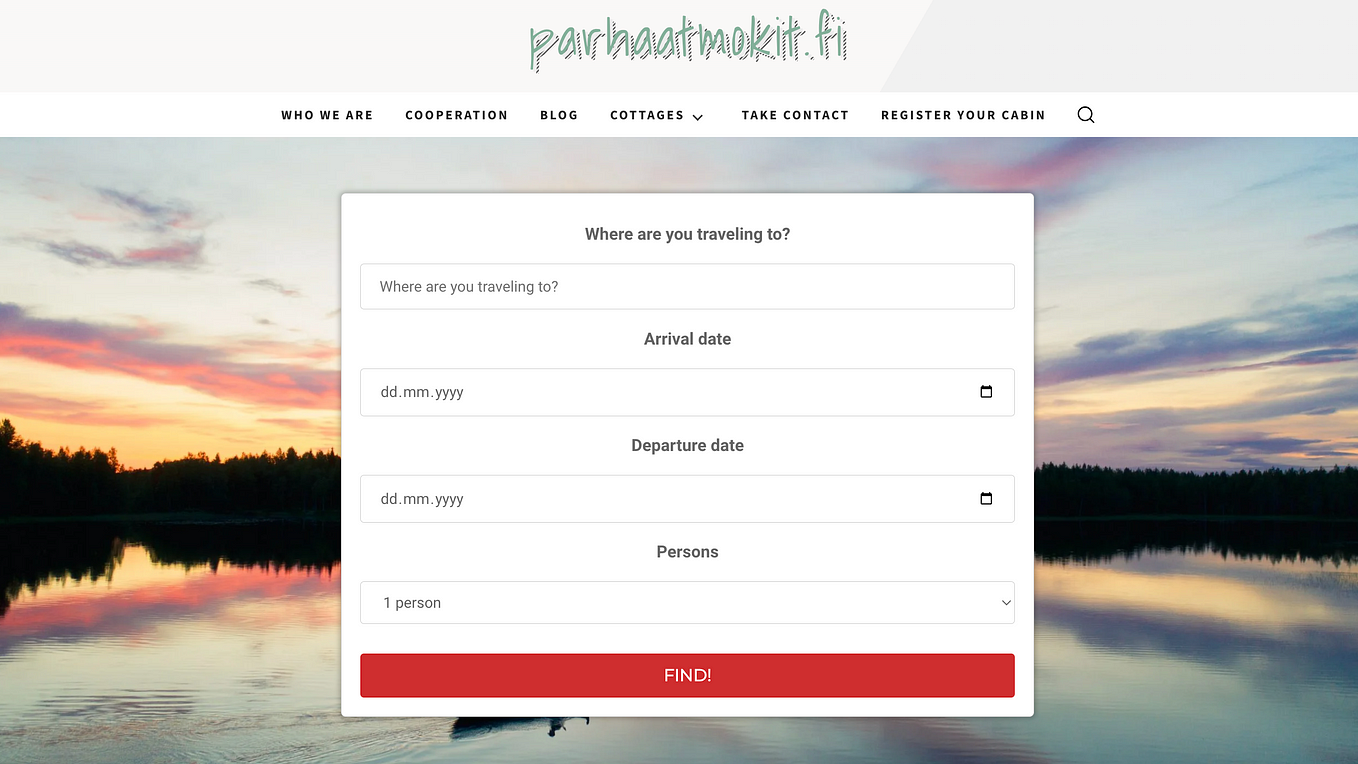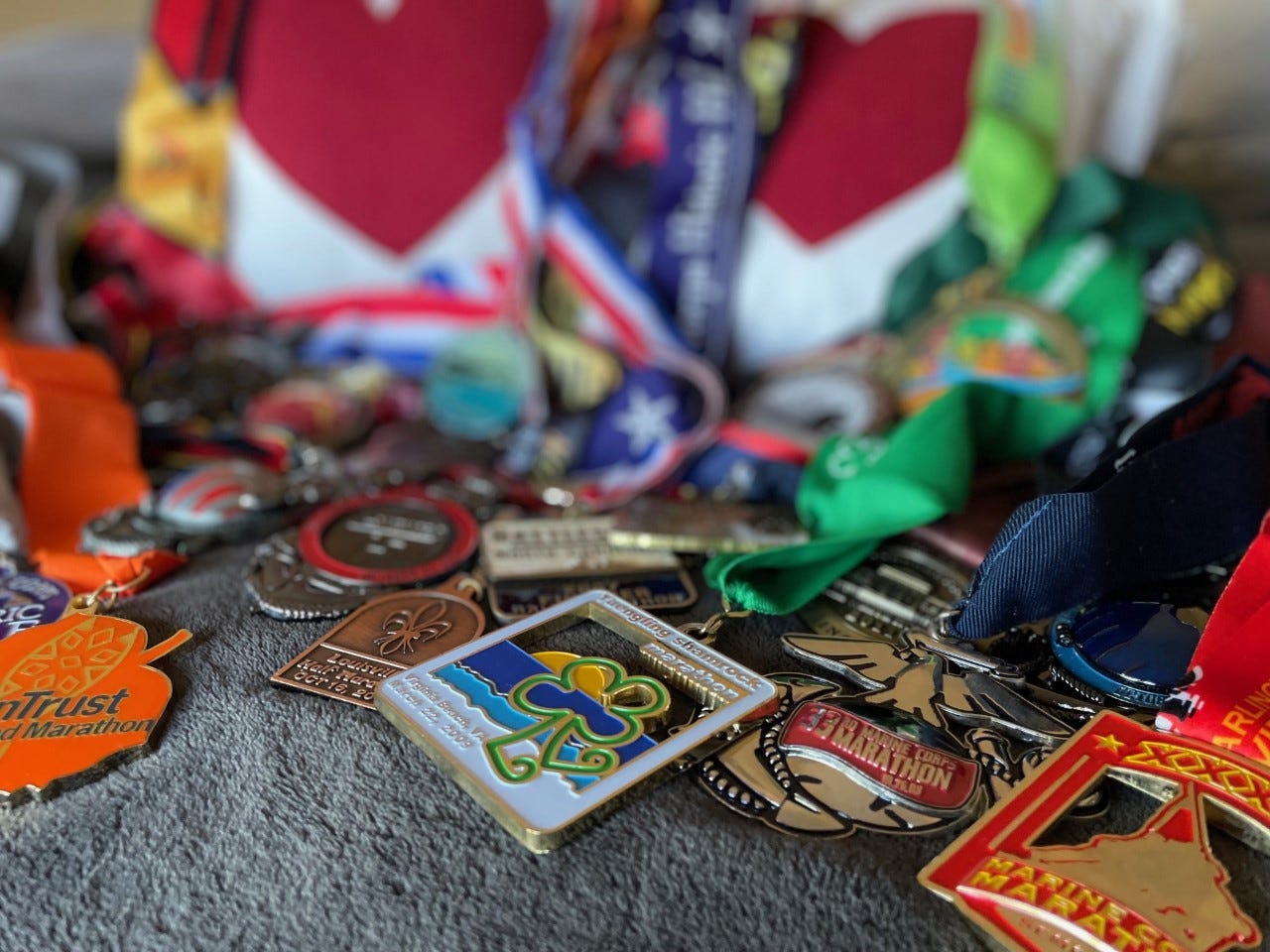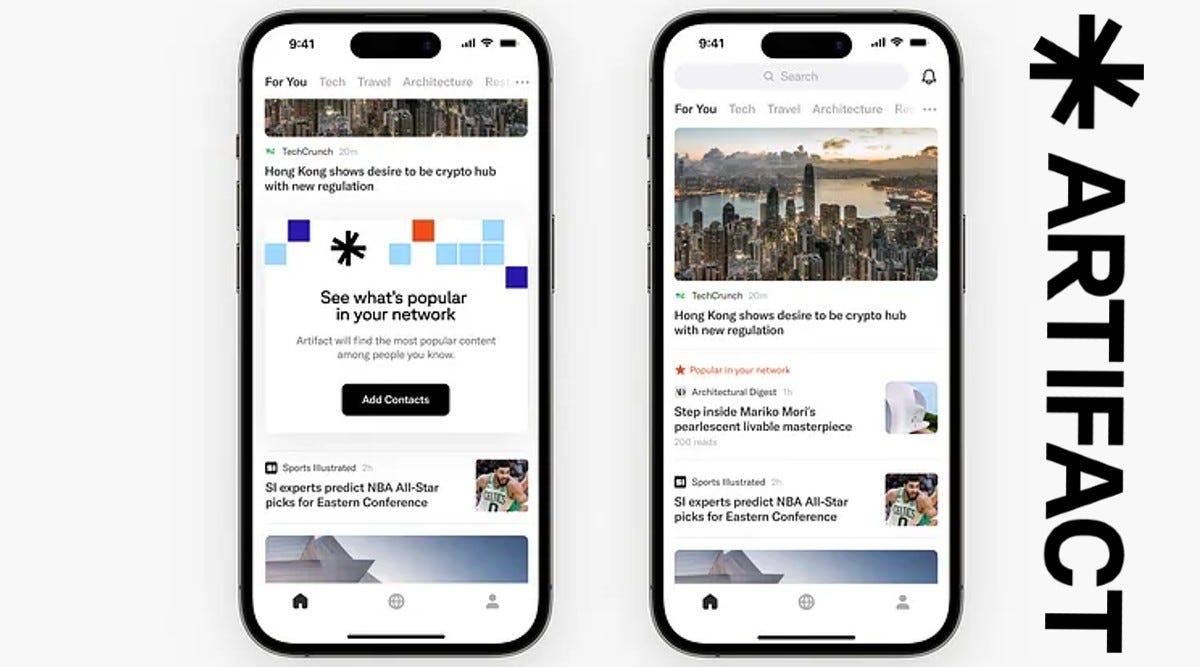An Oral History of Wikipedia, the Web’s Encyclopedia
![]() It’s hard to imagine the internet without Wikipedia. Just like the air we breathe, the definitive digital encyclopedia is the default resource for everything and everyone — from Google’s search bar to undergrad students embarking on research papers. It has more than 6 million entries in English, it is visited hundreds of millions of times per day, and it reflects whatever the world has on its mind: Trending pages this week include Tanya Roberts (R.I.P.), the Netflix drama Bridgerton, and, oh yes, the 25th Amendment to the United States Constitution.
It’s hard to imagine the internet without Wikipedia. Just like the air we breathe, the definitive digital encyclopedia is the default resource for everything and everyone — from Google’s search bar to undergrad students embarking on research papers. It has more than 6 million entries in English, it is visited hundreds of millions of times per day, and it reflects whatever the world has on its mind: Trending pages this week include Tanya Roberts (R.I.P.), the Netflix drama Bridgerton, and, oh yes, the 25th Amendment to the United States Constitution.
It was also never meant to exist — at least, not like this.
Wikipedia was launched as the ugly stepsibling of a whole other online encyclopedia, Nupedia. That site, launched in 1999, included a rigorous seven-step process for publishing articles written by volunteers. Experts would check the information before it was published online — a kind of peer-review process — which would theoretically mean every post was credible. And painstaking. And slow to publish.
“It was too hard and too intimidating,” says Jimmy Wales, Nupedia’s founder who is now, of course, better known as the founder of Wikipedia. “We realized… we need to make it easier for people.”
Now 20 years later — Wikipedia’s birthday is this Friday — nearly 300,000 editors (or “Wikipedians”) now volunteer their time to write, edit, block, squabble over, and scrub every corner of the sprawling encyclopedia. They call it “the project,” and they are dedicated to what they call its five pillars: Wikipedia is an encyclopedia; Wikipedia is written from a neutral point of view; Wikipedia is free content that anyone can use, edit, and distribute; Wikipedia’s editors should treat each other with respect and civility; and Wikipedia has no firm rules.
Behind the site itself is the Wikimedia Foundation, a San Francisco-based nonprofit that takes care of the servers, fundraising, legal challenges, and many initiatives that advance the project. Its most essential task: delicately handling volunteer editors, about 40,000 of whom are most active on English Wikipedia and more than 500 of whom have active “admin” status, which allows them to wield powers such as blocking and editing protected pages.
It is not perfect. There is trolling. There are vandals. There is bullying of “newbies” by editors. And there are imposters who edit not for the greater good but to serve the greed, vanity, or ambition of self-interested (sometimes paying) parties. And, yes, there are many, many weak and thinly sourced articles (only about 40,000 out of the site’s 6 million entries meet the higher standard of being “good articles”). There is also a gender imbalance within the domain of Wikipedia — in English Wikipedia, more than 80% of editors are men and just 18% of biographies are about women.
Regardless, Wikipedia is now a cornerstone of life online. How many wives did King Henry VIII have? Where does the word “fuck” come from? Why did people wear bearskin shoes? Wikipedia has all the answers.
So on the 20th anniversary, OneZero asked the individuals who made Wikipedia what it is today how it all started.
In the 1970s, as the Department of Defense and companies such as IBM continued to develop computer technology and personal computers appeared just over the horizon, a movement emerged to connect the increasingly nimble devices through electronic mail, as well as through the formation of the internet. By the 1980s, Ward Cunningham, a computer programmer in Portland, Oregon, who used to tinker with ham radios and dreamed of connecting computers through them, was looking for ways to innovate how software was written.
Ward Cunningham: We had to change how we thought about writing software. We said we need a new way to write about computer programming because the history was to write about computer programming as if it was mathematics. But when it comes to actually satisfying customers who now have computers on their desks, they couldn’t tell you what they wanted. And the engineers didn’t know.
In the 1990s, Cunningham ran his own computer consulting company, Cunningham & Cunningham, with his wife, Karen. He created something he called the Portland Pattern Repository for fellow programmers to publish software design patterns on his website, C2.com. He wanted to give them a way to collaborate from their homes on the internet.
Ward Cunningham: I was addressing a community that had about 500 people in it. I programmed [the earliest form of what would become a wiki] in a day or two. And when I operated it, the most overwhelming feeling that I had was that it was very quick. I was thinking, “Well, this is going to be important. I have to name it something.” I thought, “Quick Web.” But I knew that in Hawaiian wiki meant quick. And I said Wiki Wiki Web because it had an alliteration and it also would be WWW which is the same as the World Wide Web. I announced it in March of ’95. I said, “Look, I built this system and here’s how to use it.”
Katherine Maher: It was radical in the way that it enabled accessibility to publishing on the web and also enabled collaboration. So you not only didn’t have to learn how to build your own page in HTML, you could do this and you could do it with other people dynamically. It was the first step toward products like Etherpad or Google Docs. It took control over the web and put it into the keyboards of people.
Ward Cunningham: The key thing is you click on a link, and it says, “I don’t have that [information]. Why don’t you put it in?” You’re not just a reader now, you’re an author.
In 1996, Jimmy Wales, who had been working as a trader for an options and futures finance company in Chicago, started an internet company called Bomis with his boss, Michael Davis, and a colleague, Tim Shell. They created Bomis to find new business opportunities on a burgeoning World Wide Web. Started in San Diego, California, Bomis moved to St. Petersburg, Florida, before settling in San Francisco.
Jimmy Wales: [Shell] was largely in charge of content while I led the business/software side of things. We were just trying to get traffic that we could funnel to other business ideas. We had a lunch delivery service and things like that.
At the time, how to categorize the potentially endless body of knowledge on the web was a central question for the industry. Yahoo!, originally a directory of websites, was created in January 1994 by Jerry Yang and David Filo, electrical engineering graduate students at Stanford University. Google, the internet search engine, was founded in September 1998 by Larry Page and Sergey Brin, who were also grad students at Stanford.
Andrew Lih: Yahoo! was the king of the hill. Google was just getting started. And the [predominant] idea of trying to figure out where to go on the internet was to look at a directory like it was a phonebook.
Bomis had to decide how the company would build its websites.
Jimmy Wales: The big battle was between Google and their algorithmic search, and Yahoo!, which categorized things. They manually approved links, and they put them into categories. And nobody knew which was going to prevail as the dominant way of searching.
I thought, “Gee, [Yahoo!’s model] doesn’t scale very well, because Yahoo! has to hire people to do it. [Instead] we could just let anybody come and create a category.”
[Bomis created a model for information discovery called] a web ring. And people could come and create web rings on any topic. One of the first examples was somebody collected a bunch of links about Jupiter and they made a web ring about Jupiter.
Andrew Lih: It was trying to create an open source version of Yahoo!.
Jimmy Wales: We asked, “Who’s looking at all [these web rings]?” Well, it was men in their twenties. So, we did a baseball blog web ring. That went nowhere. Tim Shell built a web ring for Pamela Anderson, the actress, and it was like, unbelievable traffic. And then it turned out that people loved building web rings for actresses and models and porn stars. We didn’t set it up to do that.
Andrew Lih: They were trying to do lots of things in parallel. Not only a directory like Yahoo!, but also the Bomis Babe Report, which was an image aggregator for all that they would dub, “content for men.”
Jimmy Wales: We were saying, “We’ve got this audience. What would appeal to them?” I had been watching the growth of open source software and I had this concept of a free encyclopedia. There wasn’t a huge amount of thought about business model. I just thought, “Who knows? We’ll put ads on it or something.”
In October 1999, Bomis launched the web-based encyclopedia, Nupedia, which was to be written by volunteers. Articles were to go through a seven-step process that included being reviewed by expert editors. Wales hired Larry Sanger, a PhD philosophy candidate who was also dabbling on the internet, to be its editor-in-chief.
Larry Sanger: Jimmy was specifically interested in finding an historian or philosopher to lead the project. I maintained from the start that something really could not be a credible encyclopedia without oversight by experts. I reasoned that, if the project is open to all, it would require both management by experts and an unusually rigorous process.
[Some of Sanger’s quotes in this oral history come from earlier statements; all of which were approved for use by Sanger for OneZero.]
Britta Gustafson: Larry Sanger was bringing some academic rigor to the project.
Larry Sanger: In the fall of 2000, Jimmy and I agreed that Nupedia’s slow productivity was probably going to be an ongoing problem and that there needed to be a way in which ordinary, uncredentialed people could participate more easily.
By the turn of the millennium, the Wiki Wiki software that Cunningham had created was being used by computer programmers around the world to share computer code.
Jimmy Wales: One of the very influential essays back then was Eric Raymond’s “The Cathedral and the Bazaar,” where he talks about two models of software development, one being the cathedral model, which is a set of high priests working in secret and then the other was the bazaar model, like a marketplace of ideas with people. There was a growing understanding that Nupedia wasn’t working. It was too hard and too intimidating. We realized, “This cathedral model isn’t working. We need to make it easier for people.”
There is disagreement regarding who first thought of the idea of marrying the Wiki software with an encyclopedia. Sanger claims that it was his suggestion that prompted Wales. Wales doesn’t deny that Sanger suggested it, but he maintains that Rosenfeld suggested it to him first.
Jeremy Rosenfeld: A buddy of mine, a software engineer, was looking for a way to share photos with his family. He had found the Wiki. And in one of those informal conversations at the [Bomis] office, I introduced that to Jimmy. He was excited about it.
Larry Sanger: I was thinking hard about how to create a more open system [when] I had dinner with an old internet friend of mine, Ben Kovitz. We were out at a Pacific Beach Mexican restaurant on January 2, 2001, talking about jobs, techie stuff, and philosophy, no doubt… Ben explained the idea of Ward Cunningham’s WikiWikiWeb to me. Instantly, I was considering whether wiki would work as a more open and simple editorial system for a free, collaborative encyclopedia.
Jimmy Wales: When I came back to work in January, I was just ready to make decisions and tear things up. And so, I said, “I am going to just install this software.” So, I downloaded Use Mod Wiki [the wiki engine written in the Perl programming language, which Cunningham used to build the Wiki Wiki Web], which was a very simple way of making a webpage that anybody could edit.
Though the argument over who really introduced the Wiki model to Wales rages on, the Wikipedia community seems to have decided its position on the matter. In Sanger’s Wikipedia page, it is written, “Sanger proposed using a wiki to solicit and receive articles to put through Nupedia’s peer-review process.”
Larry Sanger: I came up with the name “Wikipedia,” a silly name for what was at first a very silly project, and the newly independent project was launched at Wikipedia.com on January 15, 2001.
Jimmy Wales: The first thing I did to test it, I wrote, “Hello, world!” Which is meaningful to programmers because when you write a new programming language, the first thing you do is write, “Hello, world!”
We made lists of things and made links, and they were just like, to-do projects. We probably created A through Z. We thought, “Oh, we need an entry on every U.S. state. So, here’s a list of all 50 states.” And then you make links — you go through and start writing them one after another. It was quite easy to just say, “Africa is a continent.” It’s not very good, but it’s safe and it’s a start.
Magnus Manske: There was something that said, basically, “We want to get to 200,000 articles and we currently have 19.” We all thought, “Oh, yeah. We hope this will eventually get there.” [We wanted to get to] the size of Britannica. I think the common guess was 10 years until we reached 100,000.
Larry Sanger: By the end of January we had approximately 600 articles; there were 1,300 in March, 2,300 in April, and 3,900 in May. Of course, an “article” meant any page with a comma.
Wikipedia was totally open and accessible, allowing anyone with basic computer skills to add pages and edit them freely, prompting early entries on Siberian huskies and Celtic music. In contrast, Nupedia appeared sluggish, stodgy, and elitist.
Jimmy Wales: We ran [Nupedia and Wikipedia] in parallel for a little bit, but it was very obvious that Wikipedia was getting more work done much faster, and was going to be a potentially successful model. So Nupedia withered.
Larry Sanger: If you were working on Wikipedia, it was, “Nupedia is boring.” If you were working on Nupedia then you saw Wikipedia as unserious and lacking credibility. I was spending probably 80% of my time on Wikipedia and 20% of my time on Nupedia. My notion was that Wikipedia was extremely exciting and that it was finally making the project of creating a free encyclopedia take off. But I didn’t want to entirely give up on Nupedia. I wanted Nupedia to be a review mechanism for Wikipedia.
The September 11th attacks on U.S. soil, which took place just nine months after Wikipedia was founded, became “a transformational moment” for the initiative. In a moment of crisis, readers turned to the site in search of answers.
Katherine Maher: I remember waking up that morning, hearing this news of a plane hitting the World Trade Center and walking the five feet from my bunk bed to my laptop in my college dorm room, trying to get on the New York Times website and having the site be down. I knew that this was a traffic surge. Millions of people were online seeking information beyond what the television could tell us.
Jimmy Wales: You just saw [videos of the attacks] over and over and over, and you saw the talking heads speculating about who could have done it.
Katherine Maher: People were seeking information, and Wikipedia was available in a way that really met a need.
Jimmy Wales: We had been cranking along reasonably well, writing an encyclopedia. It was planets and historical figures and so on. And this was the first time that the community responded to a news event, doing something that was different from journalism, but complementary. People began responding to the news by filling in the background information.
Andrew Lih: There was definitely a cognitive surplus post-9/11 because the economy took a dive; a lot of people with a lot of time on their hands. That contributed a lot to the activity on Wikipedia.
Britta Gustafson: There was a lot of 9/11 material, but I didn’t really get involved in that. Poker, The Simpsons, objectivism were the more robust sections. I was about 14 years old. I was spending a lot of time on the computer at the school library. I was a harp student and there was no article for the harp. I thought, “Well, I can write that.” I had a harp calendar which had a history of the harp on the front page. I used that for material. But, mostly, it was just off the top of my head. There were no real requirements for sourcing, and there was no real way to incorporate a citation. My younger sister, she was in seventh grade, had written a little report about Pablo Neruda. So, I took her school report and turned it into the Wikipedia article on Pablo Neruda.
Meanwhile, only two dozen articles had made it through Nupedia’s review process and were ultimately published. Sanger’s salary was reduced, and he left the project in early 2002. Nupedia was “put in mothballs.”
Jimmy Wales: Larry deserves more credit than he normally gets. He was instrumental in the early days. I always feel like people want to make a controversy where there shouldn’t be one.
As Wikipedia grew, so did the organization’s financial needs.
Stephen Harrison: Jimmy posted on the listserv for Wikipedia something like, “Well, we might explore advertisements for Wikipedia.” It was exploratory. [The reaction from community members was severe.] The Wikipedia community in Spain was so upset that they actually fragmented off… It pretty much made it so that Jimmy Wales couldn’t commercialize Wikipedia.
Jimmy Wales: The decision in 2003 to move it into the nonprofit structure was a big moment for us because it didn’t have to happen. It was becoming evident as traffic was growing, “Oh, this is going to get expensive soon.” I thought, “Well, we move into a nonprofit and maybe that’s a path to get some money that won’t require putting ads on the site.” The real question was, “Will people donate money for this?”
Wikipedia.com became Wikipedia.org in 2003.
Steven Pruitt (Wikipedian; 3.764 million edits): If it started selling ads, that alone probably would not get me to leave. What would it have done to Wikipedia as a whole? I don’t know. I don’t think it would change the project much. But it would change people’s perception of the project. And I think that alone could be problematic.
Richard Farmbrough (Wikipedian; 1.7 million edits): I think there’d be a fork. Probably more than one.
Katherine Maher: What we always say [about ads] is, “Never say never… But no.”
Wikipedia’s struggle for accuracy has been marred by questions about bias — was it an authoritative source, or a scratchpad for amateur historians?
Over the years, Wikipedia has listed numerous erroneous claims of living people being dead: from comedian Sinbad to Senator Robert Byrd. In 2008, a teenager edited the page of a coati, a member of the raccoon family most commonly found in South America, so that it said that it was, “also known as… a Brazilian aardvark.” Intended as a joke, the “fact” made its way into a number of publications and even a book published by the University of Chicago.
In May 2005, the Wikipedia article on journalist John Seigenthaler was edited to falsely state that he was a suspect in the assassinations of President John F. Kennedy and his brother, Democratic presidential candidate Robert F. Kennedy. Seigenthaler had once worked for the younger Kennedy.
Jimmy Wales: John Seigenthaler called me and said, “Hey, this article about me says this terrible thing.” And I’m like, “Oh, dear, so sorry. Let me look into it.” And within 10 minutes, it was fixed. I thought, “Oh, well, that’s annoying. But that’s the end of it.”
Richard Farmbrough: My initial reaction was, well, why didn’t he just edit the page? Of course, you’re discouraged from doing that if it’s a page about yourself.
Jimmy Wales: Then he published this scathing editorial in USA Today about [Wikipedia] being dangerous.
Seigenthaler wrote about the personal hurt he’d experienced and condemned the site; “Wikipedia is a flawed and irresponsible research tool,” he wrote. The media coverage of the incident skewered the site’s flaws of the website, namely its reliability and vulnerability to tampering. But, as the New York Times reported at the time, it was also a moment to reflect on how the encyclopedia had become a “spectacular success.”
Katherine Maher: Wikipedians always took the work that they did seriously, but also took joy in it as a project. And here you had somebody who was very vocal in the harm that it had caused. It sent a shockwave through the community.
Rich Farmbrough: I think it hurt our reputation, but I think it was quite useful to help people understand more how Wikipedia works.
Jimmy Wales: We realized that we weren’t just a little side project on the internet. We’re having an impact on the world.
Andrew Lih: The main policy that was created after that is called the BLP, or biographies of living persons, which says that if you encounter anything in an article about someone who’s alive, there’s an extra high standard of sourcing of accountability and accuracy you must abide by.
In 2004, concerns emerged that Google searches for the word “Jew” turned up an anti-Semitic website. Google declined to tweak its algorithm, so activist Daniel Sieradski organized a “Google bomb,” the manipulation of links so that a particular site rises in the Google search engine. Sieradski chose to link “Jew” to the Wikipedia entry for that word, a milestone moment that spoke to the site increasingly being perceived as a neutral and authoritative source of information.
In December 2005, Nature published a peer-reviewed report that suggested that in terms of accuracy, Wikipedia wasn’t too far behind Encyclopedia Britannica. In the report, 42 expert reviewers found that Wikipedia’s science articles had about four mistakes per item and that Britannica had about three. Britannica disputed the findings and called the report “fatally flawed.” Nature defended its article.
Katherine Maher: The lore goes that Encyclopedia Britannica immediately wrote a letter to the editor of Nature disputing this. But Wikipedians immediately wrote a letter to Jimmy asking him to get a copy of the study, so that they could go fix the Wikipedia errors.
Steven Pruitt: People look at it from the other perspective — there’s nothing stopping somebody coming in and putting crap in the article. True. But there’s no barrier towards somebody else coming in and taking that crap out.
Wales credits Tim Shell for having come up with the separate “Talk” page so that editors can converse on an adjoining page behind an article. All edits are recorded and traced to individual editors. The debates that have raged between editors have been legendary and have led to accusations of bullying, sexism, and individuals being banned — which isn’t common and normally for a limited period of time — from the site. The site sometimes trips itself up with its own policies.
But eventually, issues get resolved. Justin Knapp, the first Wikipedian to record a million edits, has gotten into his share of scrapes over entries of particular interest to him, such as the political realities and fate of the disputed territory of Western Sahara in Africa. “I got a lot of blocks for the first year or so,” he concedes. “I learned the hard way about best practices, collaboration, and wars of attrition.”
Britta Gustafson: My own personal theory is that the power of the know-it-all powers Wikipedia.
Steven Pruitt: I always expected to be in some kind of an academic setting. And the nice thing about Wikipedia was that it wasn’t constrained in the way that schoolwork was constrained. I try to do at least a few edits at the beginning or the end of the day.
Wikipedia increasingly became a reference point in mainstream culture. “Weird Al” Yankovic name-dropped the site in his 2006 song, “White & Nerdy,” affirming its reputation for bookishness. And Stephen Colbert occasionally takes satirical potshots at the site, deriding its legitimacy and asserting that its entries are dictated by groupthink rather than actual facts.
“Fuck them,” Colbert barked in one 2006 episode, referring to the site’s entry about his merely popularizing the word, “truthiness,” rather than making it up. Because of its runaway growth, the Wikimedia Foundation announced its first executive director in 2007, Canadian journalist Sue Gardner, who was given the task of ensuring “the project” would be able to handle its ballooning capacity and maintain its core directives.
Jimmy Wales: Sue came in when we were very tiny. We were based in Florida, still a handful of employees. She deserves credit for building the Wikimedia Foundation from, I’m going to venture to say, probably five or six employees, into quite a large organization after several years of time.
Katherine Maher: Sue Gardner established the infrastructure that has enabled Wikipedia to become a platform at the scale that it is. [Ed: There are now over 200 employees, and in 2007 the foundation moved to San Francisco.] She built out the necessary effective governance, strong fundraising capacity, and ensured that the institution had what it needed to make it through a period of growth.
In 2007, Wikipedia reached the 2 million-article milestone with the addition of an article on El Hormiguero, a Spanish television show. After exponential growth in volunteer editors between 2001 and 2007, the number of volunteers has largely plateaued, with about 130,000 editors contributing each month on English Wikipedia. The number of editors working on other language Wikipedias are still growing, though. In 2014, Gardner was replaced by Lila Tretikov, a software engineer, who lasted until 2016 when she was replaced by Katherine Maher.
Jimmy Wales: Katherine was [previously] our head of communications. We always have these complicated issues around the community and the foundation, where there can be mistrust and lack of understanding.
Katherine Maher: When I have a big idea or a thing that I’d like us to do, the way to do it is to go to the community with humility. They’re probably going to find all the flaws in it, and it’s going to be painful. And then at the end of the process, it’s going to be better.
In the fiscal year ending 2020, Wikipedia raised over $120 million in donations. The site spent $112 million to maintain operations. Over 85% of its operating budget is funded by small-dollar donations. The average donation is $15. Wikipedia received funding from Twitter through employee directed matching gifts. In 2019, Google announced that it would contribute $1.1 million to the Wikimedia Foundation and $2 million to the Wikimedia endowment. Wikipedia is especially open about its finances, which is very important to its volunteer editors.
Andrew Lih: The fundraising messages you see every year seem pretty dire, right? I keep telling people, “The reality is that the organism is very healthy. It has a surplus.”
Jimmy Wales: We always have to be really serious about the fundraising, because we do need money to run Wikipedia. But we’ve also found that the public supports us. Revenue on mobile is lower than the revenue on the desktop. It’s harder to type in your credit card number on your phone. It is an issue that we have to cope with.
Katherine Maher: We missed the boat a little bit on mobile but we now have a fully integrated full-service mobile editing feature. Mobile is now the primary way in which people access Wikipedia.
This year, Wikipedia’s desktop pages are getting their first full redesign in a decade, with changes to elements such as a nimble Table of Contents and collapsible sidebars.
Toby Negrin: We undertook a multiyear project to improve the Wikipedia desktop experience because we wanted to create an experience that felt similar to our long-time users, and at the same time straightforward and intuitive for new Wikipedians. Wikipedia is a collaboration, and so our process to introduce new features to Wikipedia on the desktop is built on that same spirit of iteration, collaboration, and consultation. The new features we chose to develop are overwhelmingly based on community requests or community-built gadgets, projects and ideas. Currently, we’re doing a staggered rollout of these new features as we test them on a wide range of Wikipedias.
Katherine Maher: If you look at 6 million articles in English, it sounds like an awful lot. But the number of potential notable things in the world, at least calculated by one Wikipedia editor, is above 100 million. That includes every village, elected official, painting of note ever painted. You start to realize how vast this aspiration is to collect the world’s knowledge and how we’ve made good progress, but there’s so much more progress to be made.
Today, Wikipedia is such a cornerstone of the internet that the public often takes it for granted. But it occasionally enters the public discussion, most often because of controversies regarding inclusion, bias, or inaccuracies.
In 2020, users discovered that the Scots Wikipedia had been largely written by an American teenager who simply aped the dialect; in 2019, North Face hired an advertising company in Brazil to replace otherwise neutral photos of people in nature with images of people using North Face gear turning the site into a branding opportunity. (Wikipedia has guidelines to prevent such conflict-of-interest editing, but not everyone plays by the rules.)
Now, 20 years after he helped establish Wikipedia, Sanger is probably the site’s “most outspoken critic,” or at least, its most consistent.
Larry Sanger: It’s become both opaque and centralized, centralized in the sense that the authority to participate in Wikipedia has been greatly restricted. You can be completely anonymous and even be a top-ranked Wikipedia user with administrator rights. So, they could be working for various corporations, various government spy agencies, maybe for criminal organizations.
In response, the Wikimedia Foundation told OneZero that Wikipedia is an immense undertaking, and it can be hard to control but there are systems in place to prevent and root out abuses. “A common misconception about Wikipedia is that it’s very easy to vandalize. While everyone can edit, it’s harder to keep a bad edit up than people may think,” a representative wrote. “[The] open, collaborative model is intentionally set up so that no singular authority can exert control over articles.”
Steven Pruitt: That people will violate the trust placed in them: That’s true of many realms of human experience, isn’t it? I don’t dwell on it.
Stephen Harrison: Steven Pruitt told me he could once write about every mountain in Antarctica and no one would touch them. It was still blue ocean territory. Nowadays, if you’re a new contributor, your edits are scrutinized to make sure that they’re not violating Wikipedia policies.
Steven Pruitt: The act of creating content is more codified than it was [when Wikipedia started] and I think ultimately it makes it less friendly for novice users. For the self-guided editor, it’s not as easy as it was for me.
Ward Cunningham: I don’t think the future of Wikipedia is guaranteed. But then hardly the future of anything’s guaranteed. Staying current as new knowledge becomes available is a lot of work. But they do that pretty well. And fighting off abuse burns out editors. But I think there’s a lot of smart people who understand that they’ve built something fabulous. If they can just not look at how much money Facebook is making and say, “Well, we made something better than Facebook.”
Toby Negrin: It used to be that teachers said, “Don’t look at Wikipedia.” Now, it’s “Use Wikipedia. But use it as a jumping-off point.” We’ve built trust. The community has been dedicated to the original idea.
I’m old. I remember when knowledge like this was hard to find. This is the promise of the internet. These people are writing down all of knowledge for everybody. It’s the radical concept that information should be free and that knowledge belongs to everyone. We’ve gone from plucky nonprofit to being a global icon.
